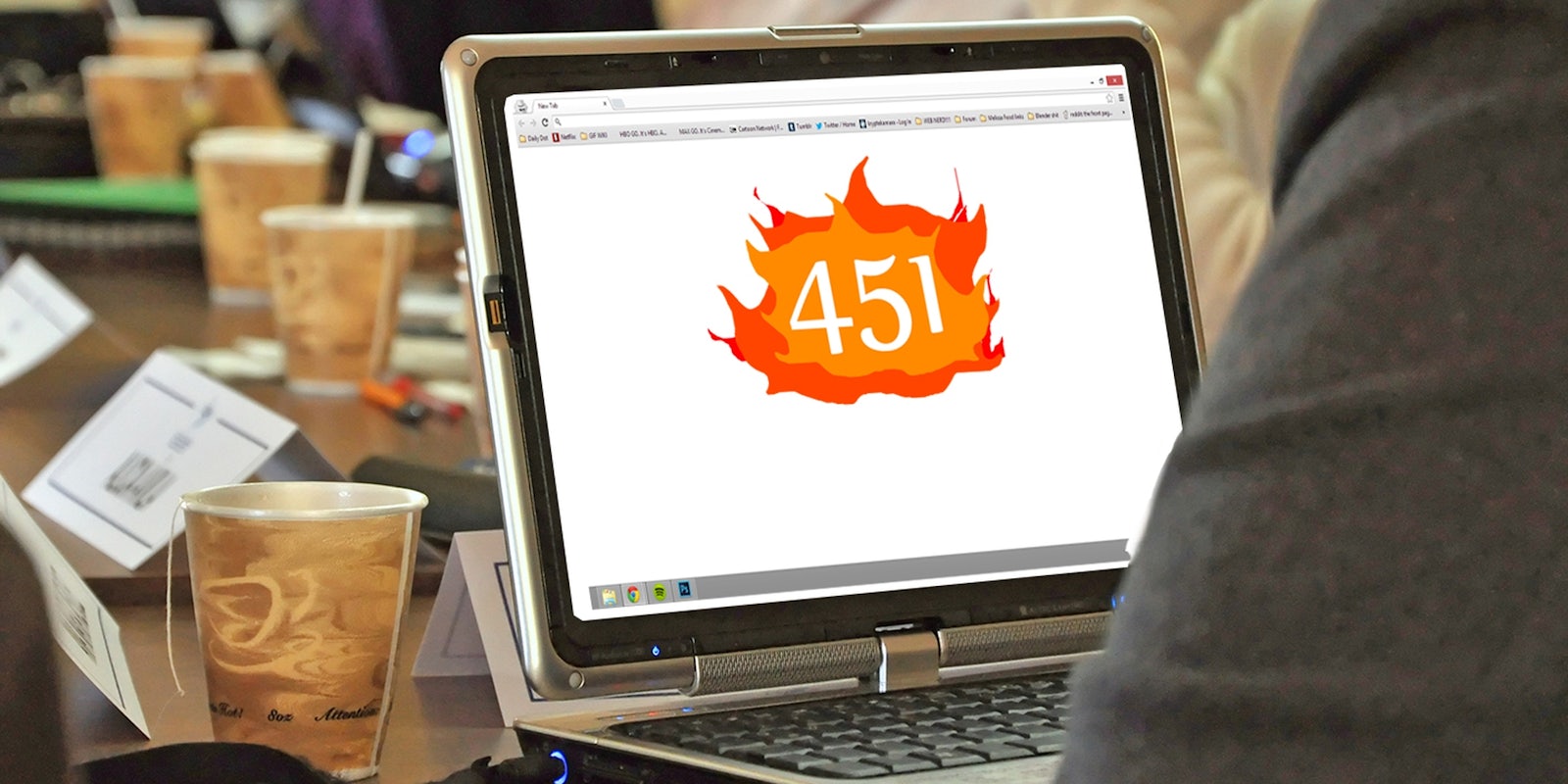There may not be a whole lot that ordinary people can do about governments censoring certain websites. Maybe, however, Internet service providers could be forced to be forthcoming about the digital intervention practiced in courtrooms—starting with an error code specific to legal blockage.
That’s the idea behind the campaign for “Error 451,” a proposed improvement for ISPs that would indicate whether, and ideally why, a site has been taken down due to a court order. As compared to the 403 error, which is meant to indicate simply that the site has refused access to the user, “451 Unavailable” corresponds to a block for copyright or political reasons.
The 451 website explains the need to make this information more broadly available, and how demanding it could result in a sea change in this type of proceeding:
Even though court orders are public documents, it is very difficult to get access to them. In theory, anyone should be able to ask the court for a copy but this is a very arduous process. Otherwise, the only way to see the orders is for Internet providers or the party making the blocking request to share them.
451 Unavailable aims to encourage Internet Service Providers to share blocking orders and eventually to persuade courts to release blocking orders by default.
Courts in the U.K., where the 451 movement appears to be based, have been issuing orders left and right to block sites that infringe on copyrights and aid digital piracy. The latest casualty was First Row Sports, a service that streamed live sporting events and pay-per-view matches. In going after First Row, however, authorities managed to kick hundreds of legitimate sites offline for sharing the same IP address. Even the BBC’s Radio Times fell under the sword. (That blocking order, incidentally, is still not public.)
The 451 campaign doesn’t simply want courts to be accountable and precise in these decisions; it also wants to push back against them, no matter where in the world they originate. To challenge legal action, users must first understand the action being taken and all applicable laws. Error 451 pages, for that reason, would “include all the key information about the blocking order including links to the relevant court order, how to challenge the block and the law allowing the court to block websites in that country.”
Naturally, the success of the 451 error idea—very likely inspired by Ray Bradbury’s Fahrenheit 451 in name, and written up in an official proposal to the Internet Engineering Task Force—wouldn’t mean the end of legal censorship. Nevertheless, it might present an opportunity to chip away at the hierarchies that impose it.
Illustration by Jason Reed


